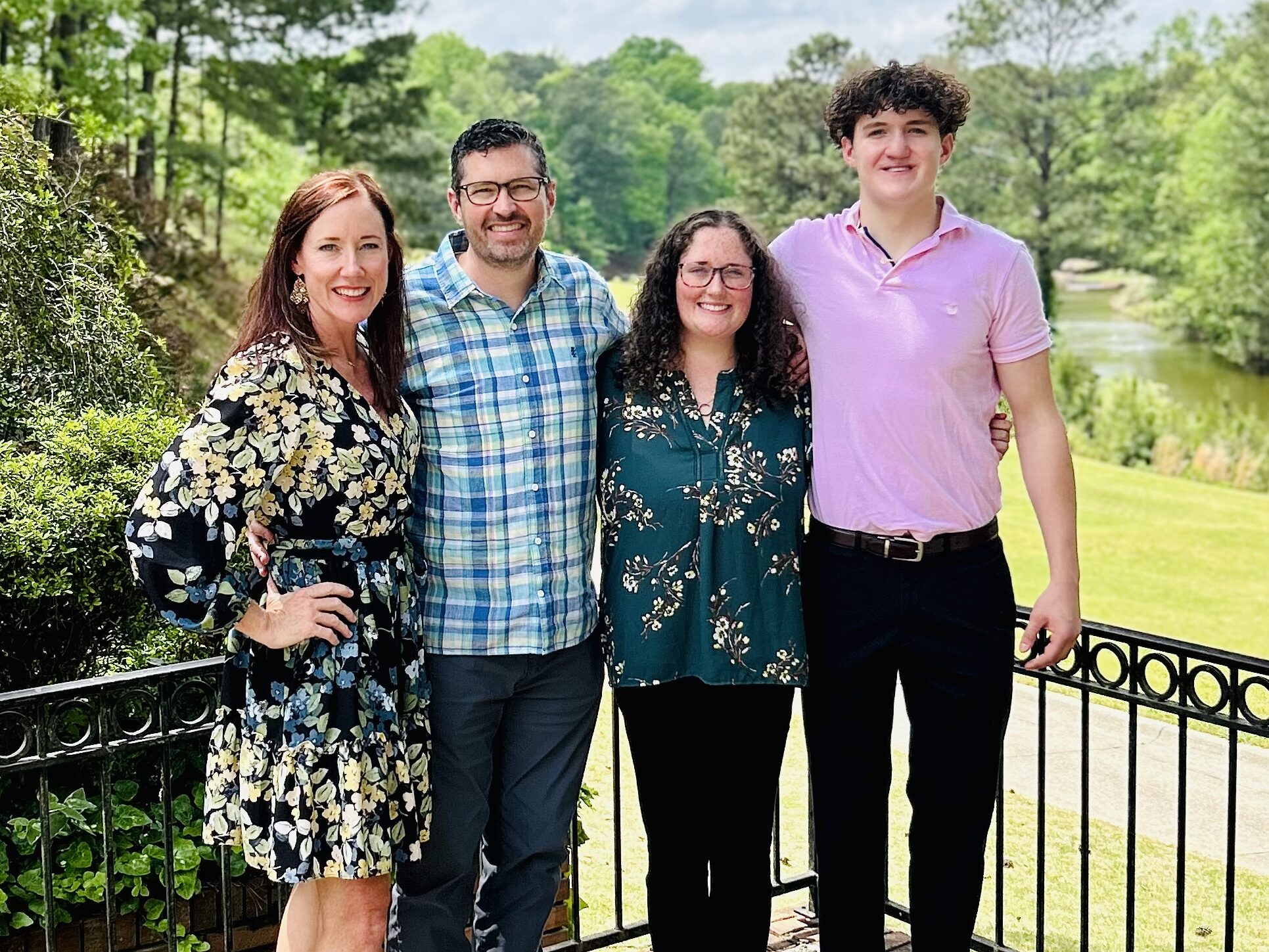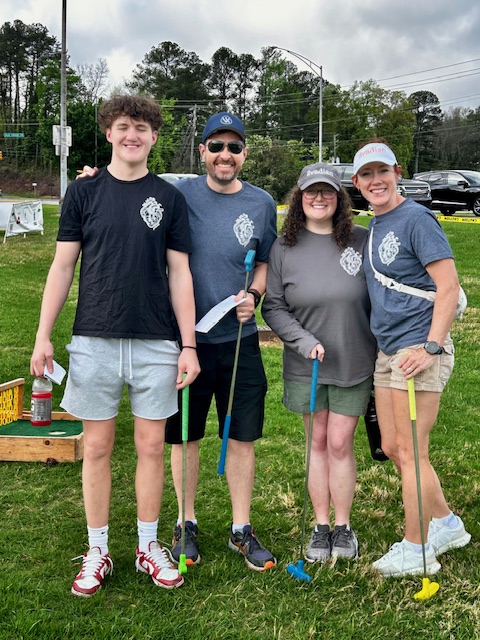
Q: What are your first memories of the impact of being diagnosed with Arrhythmogenic Right Ventricular Cardiomyopathy (ARVC)?
I remember realizing “I can’t do ‘the things’, my passions.” I was pulled out of sports when I was diagnosed (age 9), and I was no longer allowed to play baseball, soccer, or wrestling. “I felt left out.” I always wanted to play football, basketball, and track.
Q: What activities have you been involved in since you were unable to play sports?
I played the drums, golf, and pick-up basketball. I was able to start working early (age 14) and I got into weight lifting (with modifications), reselling shoes and streetwear, and learned about financial investing.
Q: What do you wish others knew?
“I wish it was clear how hard I work through it.”
Q: Can you share more about living with your cardiac condition and working through it?
I can’t physically keep up with my friends when doing ordinary physical activities, like pick-up basketball, or casual sports/cardiac activities.
I have a fear of needing a shock from my ICD to get my heart back in rhythm. I literally can’t run from danger. I don’t know if I will get caught by whatever the danger is or have a major heart issue trying to run away.
I take daily medications, check my weight and blood pressure to monitor heart failure. I often experience lightheadedness and weakness. I need extra rest/sleep. I drink a lot of water and think about things I can do to take good care of my heart.
“Doing the math in my head kind of sucks.” Calculating the average lifespan of a new heart (15 years) and guessing how long I have on this heart is often on my mind.
It’s hard to plan the future knowing a call can come any time with an immediate surgery followed by a one-year-ish recovery.
Q: If a donor heart becomes available to you, what are your post-transplant worries?
I worry about getting sick and even dying from common illnesses that can be deadly to a transplant recipient. I also worry about keeping up with all the medications and staying on the strict schedule that is required to keep the new heart healthy.
I worry that I can’t eat sushi post-transplant due to potential food poisoning. But eventually I think I’ll be able to eat it again. 😊
I worry about relationships: will people move on in their lives without me when I have to pause for a transplant? It’s also hard to know when and how much to share about my heart condition with others. I fear passing the heart condition (and/or cleft) on to my children and think adoption may be a good option.
Q: What are you looking forward to after your transplant and recovery?
Running! I want to do a triathlon with my mom. I want to play pickup basketball again and do typical activities with my friends. I want to travel and just live life!
Q: You experience another significant medical condition. Can you tell us about that?
I was born with a cleft lip and palate and I’ve had 15+ surgeries on my face. I’ve had to relearn how to talk many times due to the frequent changes in my mouth/face structure. This led to “feelings of alienation” as a child. Although I was able to navigate those better as I got into middle and high school. I continue to need craniofacial repair and am likely to have additional surgeries in the future.
“A question I used to always ask myself was: Would I rather have a heart condition or cleft?” I stopped asking myself that because it doesn’t change that I have both and comparing them doesn’t help. Now I know “there’s no Eli without these conditions.”
Q: You, your sister, and your brother have ARVC: Kenny, who died from the effects of ARVC at age 14, and Kya, who is now 21. Can you talk about what it’s like to be one of three siblings with the same heart condition?
I worry more. I worry about my sister and it’s hard not to compare our symptoms.
I have a feeling of being the “last hope”. I worry that my parents who already lost their son, will also “lose their daughter and me, and they’ll be back at square one. This is the main driver that keeps me going and not giving up.”
“I wouldn’t be here without them [my parents]”. They fight for appointments and medical care, and work hard to make sure I have what I need.
Q: What helps you with all of these worries?
“God. Leaning into him and remembering he’s all I need in life and that he has a plan for me.”
Q: How does COTA help with this journey?
The expense of everything is overwhelming. It helps our family and other families like ours pay for life-saving medical treatment.
Q: What do you want people to remember from this interview?
I would call these “the takeaways...”
I hope people better understand how my life is different: Consider the everyday life stressors, then add waiting for your phone to ring to go have a heart transplant, and dealing with the symptoms of heart failure.
“All failures are mental until death.” This means that nothing is permanent, except death. ‘Failures’ are temporary, and you can come back from anything.
I love my life and am very grateful. There isn’t one day I don’t feel blessed by God. God is good.
A note from Mom
That part about being the “last hope” really got me. Eli has tremendous insight into his parents’ fears and worries. He carries them more closely than we imagined, more closely than we want him to. The weight of it is unfathomable. Eli’s faith and the cumulative strength of our family, friends, and global community of support are crucial. We appreciate each of you so much.
We are in a relatively quiet period of medical treatment. While we have several medical appointments, they are largely related to our ‘normal’ and we are grateful for this quiet time.
We continue to think about long-term cardiac and transplant care expenses. It’s easy to become overwhelmed thinking about the future, but the support we receive from COTA is tremendously helpful. For example, the current cardiac medications for both Kya and Eli cost an average of $250/month. Truthfully, it’s a bit uncomfortable to talk about finances and fundraising, but we hope that providing a real example helps illustrate our gratitude and how significant the COTA program is. This is a good time to reiterate that expense requests are processed by COTA to ensure every penny is going to cardiac and transplant-related care for our family and families like ours! They do a great job!
We continue working toward our fundraising goal. If you are interested in helping in any way, please don’t hesitate to reach out!
Thank you for supporting COTA in honor of Kya and Eli and all COTA families!


Thank you for opening up your thoughts to us! You all are incredibly strong and have such a beautiful way of dealing with this. I continue to pray for you all! <3
Thank you for the support Amber! 🥰
Eli thank you for sharing what it’s like going through life on the daily.
I wish none of this had to be thoughts on your mind. I want to do bad take any of those worries away.
We love you more than any words can express. You are on my mind daily and I never stop praying for you and your sister. We love you!!!
I want to, “so bad take those worries away.” not do bad, ugh ..
Thank you Aunt Alisa!! ❤️